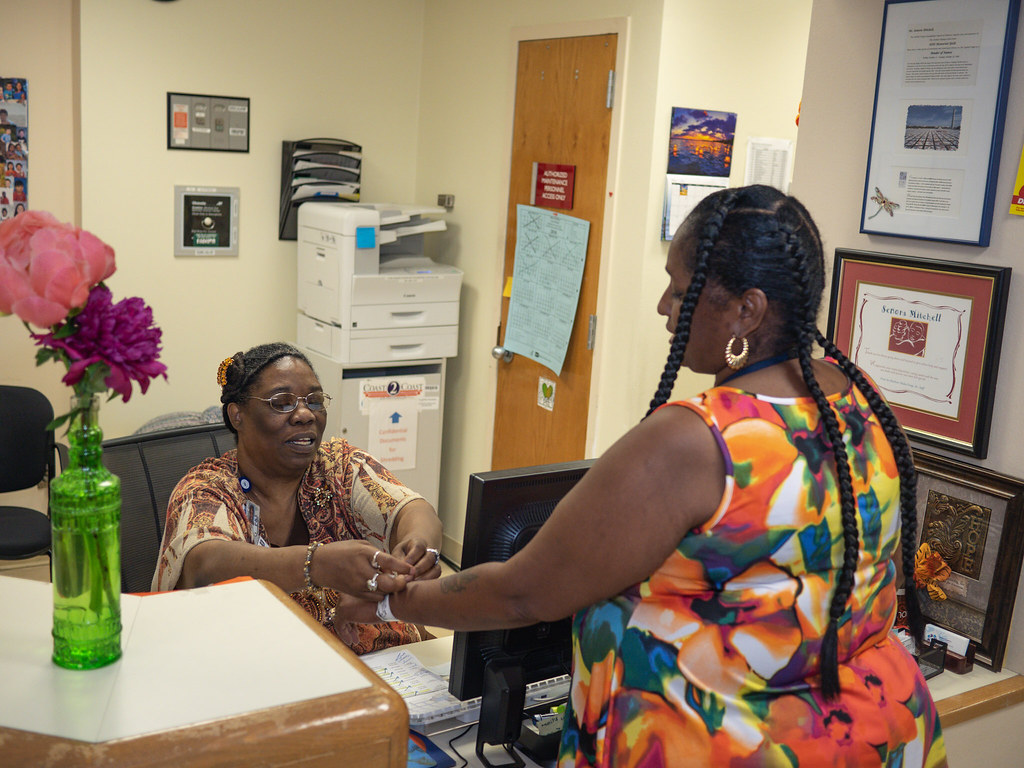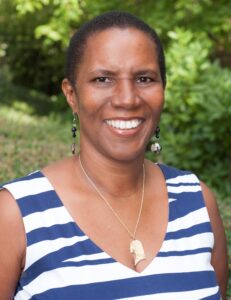We are thrilled to have had three gender and health specialists – Janice Cooper, Renu Khanna and Sally Theobald – joining us to guest edit the Health issue of G&D.
Here, Janice, who is Senior Project Adviser for the Liberia Mental Health Initiative at The Carter Center, shares her thoughts on the experience.
When I agreed to join a team to edit an issue of Gender and Development, I did not foresee how challenging life circumstances would become, and how these would affect the ways in which we undertook the group task of editing this issue on health.
As a reviewer of journal articles in the past, I had not given much thought to a supportive, strengths-based, developmental and learning approach to the editing process. For our team, working on this journal during the COVID-19 pandemic has led to personal growth, as have so many of our collective experiences. I joined a process of women coming together, most of whom I did not know. Our team represents the global North and global South.
Challenges
There were the usual challenges of working from a low-middle income country where access to basic amenities can be limited at the best of times, even for someone with more resources than the average Liberian, who in pre-COVID times lived on less than one US dollar per day. Now, life is even harder. The trouble with internet connectivity in a community that lost its transformer in the early part of the COVID response only compounded the challenges. There were added difficulties posed by a family medical emergency, when I had to travel to neighbouring Ghana so my sister could receive medical attention not available in my native Liberia. During this period, one of our fellow editors had to bow out of the process. But throughout these challenges, the sisterhood, friendship, and commitment afforded by group members rallied us to completion.
As we reviewed the articles and provided feedback and suggestions, it became clear how long some of us had been in the ‘development’ space or sector. In particular, I began to reflect on previous articles – both scholarly and non-scholarly – that outlined the difficulties and triumphs women and girls have faced in all societies but particularly in low-resource settings, and including conflict-affected places, like Liberia. This reflection took me back to Christina Lamb’s work, in which she chronicled the experiences of women and girls in post-conflict Liberia, fully one decade after the war. This reminded me again of the fact that while collectively those active in this sector have much professional and personal investment in women’s issues and women’s health, it is the sisterhood and support brought to this work that most inspires me.
It is my hope that readers take away from the articles in this issue some of the same experiences we had during our process of reviewing, selecting, and shepherding the work of these authors to print. Specifically, I hope what comes through are the lenses with which we viewed the work presented. Our approach was strengths-based, encouraging and supportive, seeking to stay true to authors’ presentations.
Editing and publication – the context
While we were engaged in this internal process, outside, in the wider world COVID 19 was raging. I was interested to see that the much vaunted ‘strong male leadership’ provided by some heads of government was revealed to be anything but when juxtaposed with the response of a group of young female leaders matter-of-factly addressing their own COVID crises. And for me, it is important that this issue comes out as parts of the world have been confronting racism and xenophobia, and clear lines have been drawn that many do not intend to row back from. As an African woman with twenty years of experience in both development work and in mental health service provision in the US, working on this issue has been humbling, gratifying, and a tremendous privilege.


